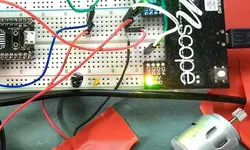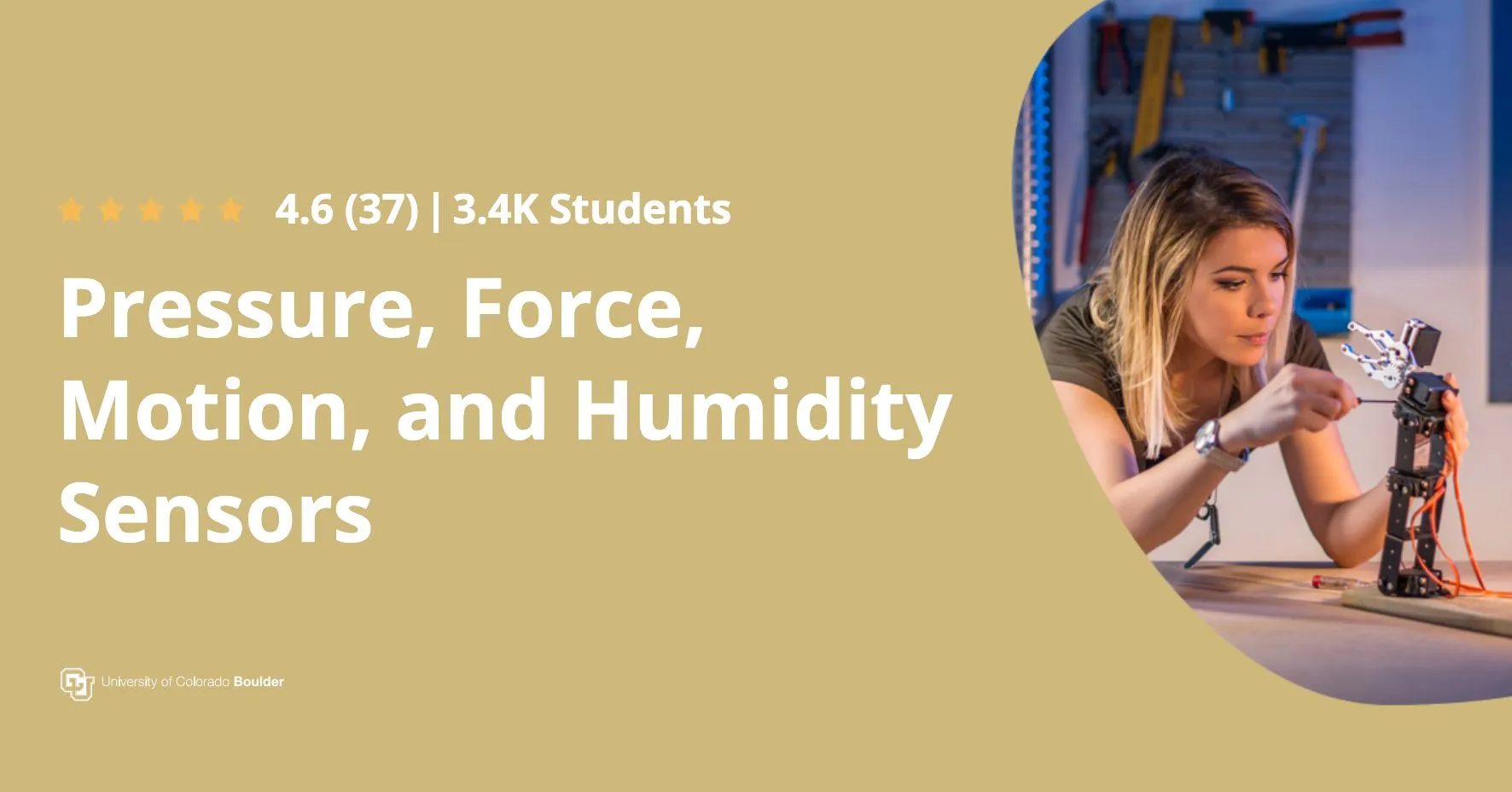
Sensor Manufacturing and Process Control 
This course provides an overview of the principles and techniques used in the design, fabrication, and testing of sensors and process control systems. It is offered as part of the Master of Science in Electrical Engineering degree at the University of Colorado Boulder. ▼
ADVERTISEMENT
Course Feature
![]() Cost:
Cost:
Free
![]() Provider:
Provider:
Coursera
![]() Certificate:
Certificate:
Paid Certification
![]() Language:
Language:
English
![]() Start Date:
Start Date:
Self Paced
Course Overview
❗The content presented here is sourced directly from Coursera platform. For comprehensive course details, including enrollment information, simply click on the 'Go to class' link on our website.
Updated in [March 06th, 2023]
This course provides an overview of sensor manufacturing and process control. Students will learn how sensor manufacturers characterize and calibrate their sensors. They will also gain an understanding of the manufacturing methods used to build electro-mechanical and micro-machined sensors. Additionally, students will be able to tune a PID control loop and access the PID control function of the Cypress PSoC development kit for a motor control application. By the end of the course, students will have a comprehensive understanding of sensor manufacturing and process control.
[Applications]
After this course, students should be able to apply the knowledge they have gained to develop and manufacture sensors, tune PID control loops, and access the PID control function of the Cypress PSoC development kit for motor control applications. Additionally, students should be able to understand the manufacturing methods used to build electro-mechanical and micro-machined sensors.
[Career Paths]
[Title]Robotics Engineer
[Description]Design, build, and program robots for industrial, commercial, and consumer applications. Develop algorithms for robotic motion control, navigation, and manipulation. Utilize computer vision and machine learning to enable robots to interact with their environment.
[Title]Data Scientist
[Description]Analyze large datasets to uncover patterns and trends. Develop predictive models and machine learning algorithms to solve complex problems. Utilize data visualization techniques to communicate insights.
[Title]Software Engineer
[Description]Design, develop, and maintain software applications. Utilize object-oriented programming and software development methodologies to create robust and scalable applications. Develop user interfaces and integrate with external systems.
[Education Paths]
1. Bachelor of Science in Electrical Engineering: This degree program provides students with a comprehensive understanding of electrical engineering principles and their application in the design and development of electrical systems. Students learn about circuit design, signal processing, digital systems, and embedded systems. They also gain experience in the use of sensors and process control systems. This degree is ideal for those interested in working in the sensor manufacturing and process control industry.
2. Master of Science in Robotics: This degree program provides students with a comprehensive understanding of robotics principles and their application in the design and development of robotic systems. Students learn about robot design, motion control, artificial intelligence, and machine learning. They also gain experience in the use of sensors and process control systems. This degree is ideal for those interested in working in the sensor manufacturing and process control industry.
3. Master of Science in Automation and Control: This degree program provides students with a comprehensive understanding of automation and control principles and their application in the design and development of automated systems. Students learn about system design, control theory, and automation systems. They also gain experience in the use of sensors and process control systems. This degree is ideal for those interested in working in the sensor manufacturing and process control industry.
4. Doctor of Philosophy in Mechatronics: This degree program provides students with a comprehensive understanding of mechatronics principles and their application in the design and development of mechatronic systems. Students learn about system design, control theory, and mechatronic systems. They also gain experience in the use of sensors and process control systems. This degree is ideal for those interested in working in the sensor manufacturing and process control industry.
The development trends in the sensor manufacturing and process control industry are focused on the use of advanced technologies such as artificial intelligence, machine learning, and robotics. These technologies are being used to improve the accuracy and efficiency of sensor manufacturing and process control systems. Additionally, the use of cloud computing and the Internet of Things (IoT) are becoming increasingly important in the industry, as they allow for remote monitoring and control of sensor manufacturing and process control systems.
Pros & Cons

Learned a lot

Broad view of sensor circuits and MEMS manufacturing

Real lab exercises with careful instructions

Quiz is helpful

Excellent class

Very useful

Some quiz questions difficult or have typing errors

Presentation slides lack clear understanding

Some concepts not well explained
Course Provider

Provider Coursera's Stats at AZClass
Sensor Manufacturing and Process Control provides an overview of the principles and techniques used in the design, manufacture and testing of sensors and process control systems. Learners can understand how sensor manufacturers characterize and calibrate their sensors. This includes understanding the different types of sensors, their specifications, and the methods used to calibrate them. Learners can learn how to tune a PID control loop and access the PID control functionality of the Cypress PSoC Development Kit for motor control applications. This includes understanding the principles of PID control, the parameters used to regulate the loop, and the methods used to implement the control.
Discussion and Reviews
0.0 (Based on 0 reviews)
Explore Similar Online Courses

jQuery and AJAX for Beginners - The Definitive Guide

Design Your Virtual Classroom with Canva

Python for Informatics: Exploring Information

Social Network Analysis

Introduction to Systematic Review and Meta-Analysis

The Analytics Edge

DCO042 - Python For Informatics

Causal Diagrams: Draw Your Assumptions Before Your Conclusions

Whole genome sequencing of bacterial genomes - tools and applications

Pressure Force Motion and Humidity Sensors

Appliance Testing Fundamentals


Start your review of Sensor Manufacturing and Process Control